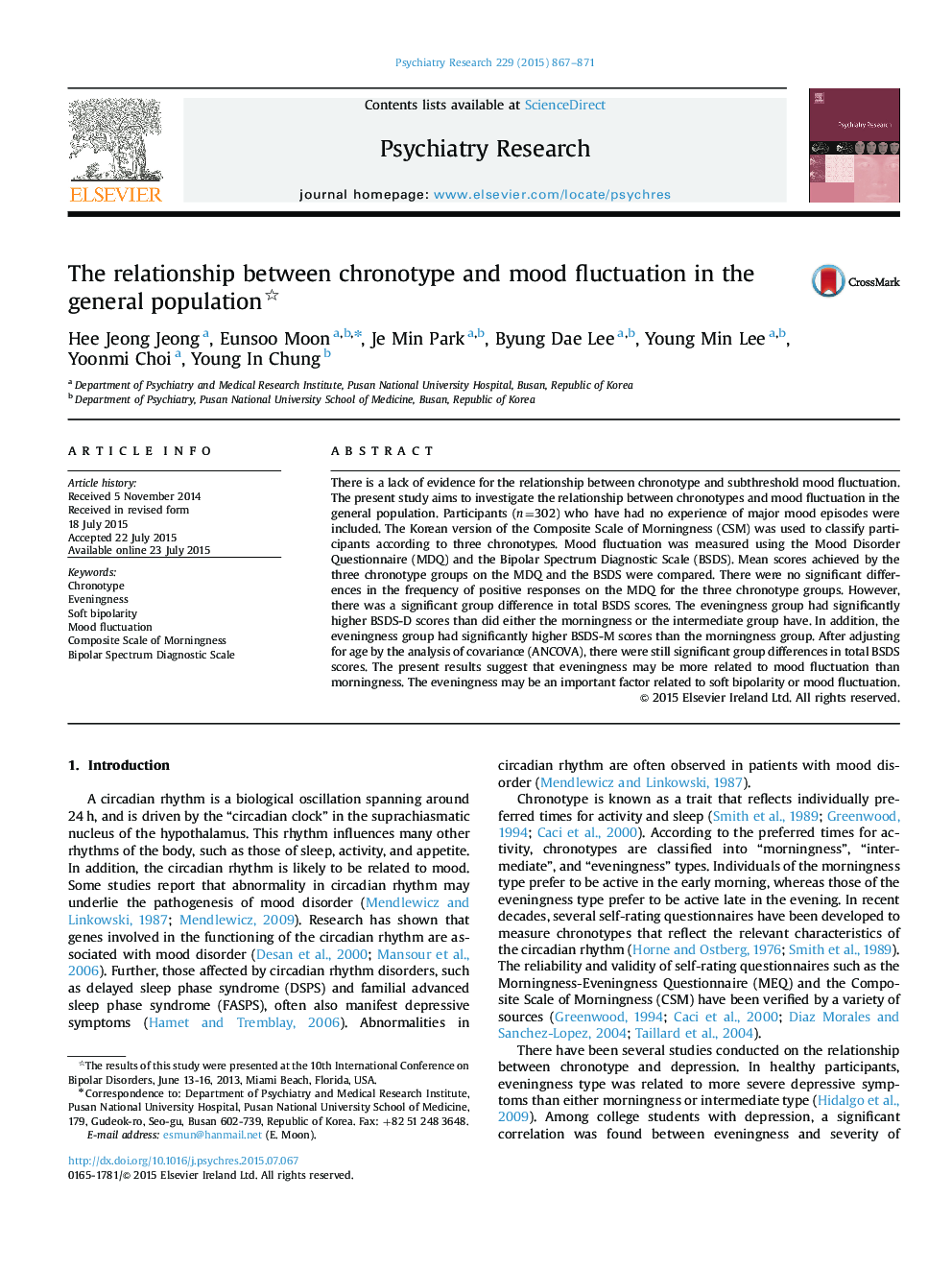| کد مقاله | کد نشریه | سال انتشار | مقاله انگلیسی | نسخه تمام متن |
|---|---|---|---|---|
| 333393 | 545917 | 2015 | 5 صفحه PDF | دانلود رایگان |
• The Morningness group had a lower BSDS score than both the eveningness and intermediate groups.
• The eveningness group had sigificantly higher BSDS-D scores than either the morningness or the intermediate group.
• The eveningness group had significanty higher BSDS-M scores than the morningness group.
• The eveningness may be more related to mood fluctuation than the morningness.
• The eveningness may be an important factor related to mood fluctuation or soft bipolarity.
There is a lack of evidence for the relationship between chronotype and subthreshold mood fluctuation. The present study aims to investigate the relationship between chronotypes and mood fluctuation in the general population. Participants (n=302) who have had no experience of major mood episodes were included. The Korean version of the Composite Scale of Morningness (CSM) was used to classify participants according to three chronotypes. Mood fluctuation was measured using the Mood Disorder Questionnaire (MDQ) and the Bipolar Spectrum Diagnostic Scale (BSDS). Mean scores achieved by the three chronotype groups on the MDQ and the BSDS were compared. There were no significant differences in the frequency of positive responses on the MDQ for the three chronotype groups. However, there was a significant group difference in total BSDS scores. The eveningness group had significantly higher BSDS-D scores than did either the morningness or the intermediate group have. In addition, the eveningness group had significantly higher BSDS-M scores than the morningness group. After adjusting for age by the analysis of covariance (ANCOVA), there were still significant group differences in total BSDS scores. The present results suggest that eveningness may be more related to mood fluctuation than morningness. The eveningness may be an important factor related to soft bipolarity or mood fluctuation.
Journal: Psychiatry Research - Volume 229, Issue 3, 30 October 2015, Pages 867–871
